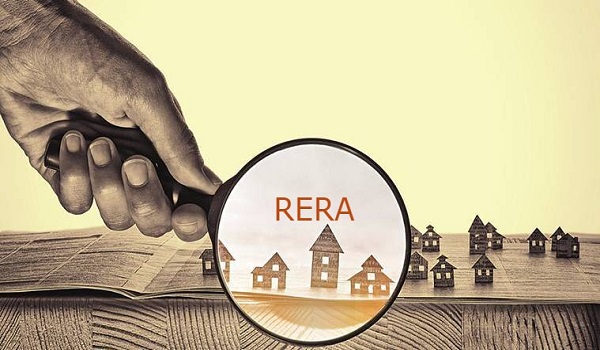Renting vs Buying Explained: Benefits, Costs, and Long-Term Impact

The decision of Renting vs Buying a house is one of the biggest financial choices that most individuals are likely to make, and in 2025, it is not easier compared to the situation in the past decade.
As rents in the metros have soared, interest rates have been rising, and new cities such as Rajkot have emerged as hotbeds of real estate. More and more Indians are starting to question the wisdom of renting as opposed to owning.
This will take you through the advantages and disadvantages and the implications of the long-term cost-benefit analysis of renting versus buying a home in India in 2025, whether you are interested in a modern apartment in Mumbai, a 2BHK in the area of your job in Bangalore, or a house for sale in rajkot.
Introduction: Why the Renting vs Buying Debate Matters?
The choice of Renting vs Buying does not only concern where you will be living, but also affects your life and money. The advantages of renting are more choices and less initial expenditure, whereas ownership is beneficial in accumulating wealth.
For example, browsing a house for sale in Rajkot could be a good initial step toward stability and building assets. This is why the Renting vs Buying question is of importance to anyone planning to do something in India.
Understanding the Real Estate Landscape in India (2025)

India's real estate landscape has moved on as follows:
Interest Rates: The current rates of interest on the home loans are approximately 8-9 percent, a bit higher than they were before the pandemic; however, it is affordable to most home-buyers.
House Prices: Tier-1 cities remain costly, but Tier-2 cities like Rajkot, Surat, and Nagpur have recorded moderate and consistent growth.
Government Incentives: First-time purchasers are being assisted by government programs such as PMAY (Pradhan Mantri Awas Yojana), the deduction of interest on home loans under section 80C and 24(b), etc.
Rental Prices: Rental prices have been on the rise over the last year, particularly in IT hubs and urbanized metropolitan regions, which are usually ahead of wages.
Nevertheless, in the context of the comparison between Renting vs Buying, it is not necessarily a black-and-white question. We will make a comparison between the monthly and long-term expenses.
Benefits of Renting a Home in India
1. Flexibility and Freedom
Renting is the most appropriate when you change your location frequently, either due to work or other personal reasons. You are basically able to move into a new locale or community with minimal hassle.
Scenario: A young employee in a tech start-up based in Ahmedabad may need to relocate to Pune by next year. Renting will help them to move freely without the concern of incurring extra capital costs.
2. Lower Upfront Costs
You don’t have to worry about a down payment, registration and title search fees, stamp duty, or maintenance costs. In a typical rental arrangement, you only need a nominal amount of money, such as a security deposit and monthly rent.
3. Minimal Responsibility
Don't worry about repairs, refurbishments, or condo meetings; this is the responsibility of your landlord.
4. Access to Amenities
Modern rental properties often have amenities such as gyms, security, swimming pools, and power backup, at no extra charge.
Benefits of Buying a Home in India
1. Long-Term Investment
A home is a physical asset that usually increases in value over time. In developing economies in particular. For instance, if you buy a house for sale in Rajkot, there is a real prospect for capital appreciation.
2. Stability and Security
Owning a home implies that, as compared to being a tenant, you need not fear eviction and facing a rise in your rent. You are also able to make plans about where you will be in the future without doubts.
3. Tax Benefits
People who own homes in India are entitled to deductions for home loan interest (which is capped at ₹2 lakh per year under Section 24) and for principal repayment (capped at ₹1.5 lakh annually under Section 80C).
4. Freedom to Customize
From the inside of the house to the outside of the home - you can make it whatever you wish.
Costs of Renting
Although renting may seem cost-effective in the short term, there may be drawbacks:
No Equity Building: When you pay rent, you do not acquire ownership or assets.
Annual Rent Increases: Typically, landlords raise your rent annually by 5–10%, and this can be burdensome.
Uncertainty: You have to deal with sudden or unpredictable moves and notice periods.
Costs of Buying
Purchasing property can be fulfilling, but it is also costly.
High Up Front Costs: Initial costs for buying property, including down payments (which are typically 10-20% of the value of the property), registration, and taxes, are sizeable.
Home Loan EMIs: The monthly EMIs of home loans might be greater than the rent of the same property and surrounding costs.
Maintenance and Repairs: As a homeowner, whether maintenance or repairs are preventive or unplanned, your liability will suffer all costs.
Liquidity Constraints: Converting your home to cash may take time. This is in contrast to investments in liquid (cash equivalent) assets.
Long-Term Impact: Renting vs Buying in India
Renting in the Long Term
Provides flexibility, but no wealth accumulation.
Good for individuals with unstable jobs or those who want to detach their personal lives from ownership.
In extremely expensive markets, it can potentially be cheaper, but it will not pay off in the end.
Buying in the Long Term
Creates an appreciating asset that offers financial security.
Once the loan is paid off, you own a debt-free investment.
Also, it offers a hedge against inflation because homes can increase in value, and so can your rent.
For example, purchasing a house for sale in Rajkot today might equate to not only purchasing a place to live but also witnessing good equity from a property value increase as the city continues to expand its infrastructure and profit from real estate.
Renting vs Buying in Rajkot
Rajkot is a rapidly growing city in the state of Gujarat with solid growth in industry, education, and infrastructure. If you are looking at house for sale in Rajkot, you will find that it has:
Affordable property rates compared to metros.
Strong appreciation potential due to the planned projects coming soon.
Possibilities for rental income from both students and working professionals.
Rajkot is an encouraging place to be a buyer; only those not ready to settle are still welcome to rent.
Real-Life Scenarios: Who Should Do What?
Recent college graduate staying in Bengaluru: You should start off renting. Focus on your career growth and savings.
Young couple currently living in Rajkot with ₹15L in savings: You should consider purchasing a house that is for sale in Rajkot, likely future growth of the area, and there is not as much competition for houses as there is in a metro.
The elderly person residing in Mumbai: In case you are planning to have a better future that lasts over a longer period, owning said property might relax your mind and give it stability.
Conclusion
The Renting vs Buying question in India in 2025 is about more than money. It is concerning the manner in which you want to live, what risk you are ready to take, and your long-term goals. It could be your apartment rented or even a house for sale in Rajkot; your home must be your support system and not your wall.
Read More: Difference Between Flat and Plot
FAQs
Q1: Should I rent or buy a home?
Ans: Leasing gives one flexibility, and buying builds up equity. A house for sale in Rajkot is worth considering to purchase in the event that you are planning to remain in the city of Rajkot for a 5-10 year span.
Q2: What is the greatest disadvantage to renting rather than buying a home?
Ans: When renting, you are not building equity as you would if you purchased the home, so you don't accumulate any lasting value.
Q3: Which is better to rent or buy?
Ans: It depends Renting vs Buying is more about lifestyle and finances than one being better than the other. Purchase a home for stability, rent a home for mobility.









ADD COMMENT